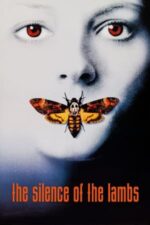Beyond the Page: Why Films Adapted From Books Hold a Special Magic
Hey everyone! Let’s talk about something I'm genuinely passionate about: films based on books. There's just something special about seeing a story you already love – or one you’re eager to discover – brought to life on screen. It’s more than just entertainment; it’s a conversation between two art forms, and the results can be truly captivating.
Think about it: when an author crafts a novel, they're building a world in your head. You picture the characters, imagine their surroundings, feel the emotions alongside them. A film adaptation has to translate all of that – and often, it does so in ways you never anticipated. Sometimes, it’s a faithful recreation; other times, it takes liberties, offering a fresh perspective on familiar material. And honestly? Both can be brilliant.
Take “My Oxford Year,” for example. It's a charming film about navigating new experiences and unexpected romance, set against the backdrop of a prestigious university. While it might not delve into every nuance of the original story (if there even was one!), it captures that feeling of youthful discovery – that sense of being swept away by something bigger than yourself. It reminds me a bit of how I felt when I first moved to London, completely overwhelmed and exhilarated all at once!
Then you have films like “(Ab)normal Desire,” adapted from Ryo Asai’s novel. These kinds of adaptations often tackle complex themes – in this case, societal pressure and the struggle for acceptance. It's fascinating how filmmakers can use visual storytelling to amplify those themes, offering a new layer of understanding beyond what words alone could convey. It really makes you think about how we all present ourselves to the world, doesn’t it?
And it's not just serious dramas! Even lighter fare like "Time for Her to Come Home for Christmas" or “My Next Life as a Villainess” – which I admittedly haven’t read the source material for (though they sound intriguing!) – demonstrate how beloved stories can be reimagined and enjoyed in new formats. And then there's something truly powerful about seeing a historical narrative like "Fonissa," adapted from its original text, brought to life with such raw emotion and visual impact. It’s a testament to the power of literature to inspire important conversations on screen.
Finally, films like “Totto-chan: The Little Girl at the Window” offer a beautiful glimpse into childhood memories and innovative educational philosophies. They remind us that stories can be both entertaining and deeply meaningful.
Ultimately, adaptations aren't about replacing the book; they’re about expanding its reach and offering a different kind of experience. So next time you’re looking for something to watch, consider seeking out a film based on a novel – you might just discover a whole new way to appreciate a story you already love!






































